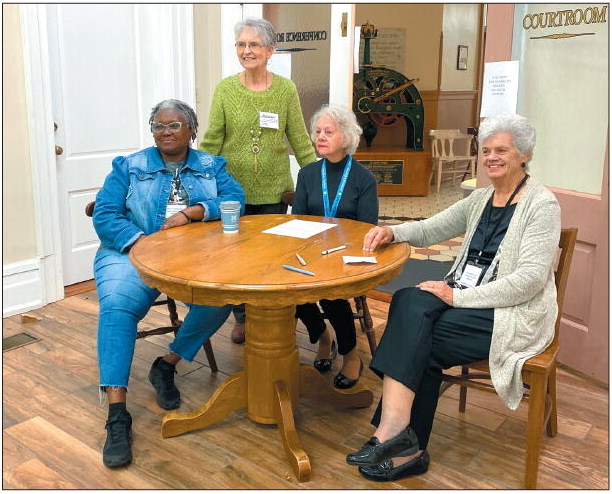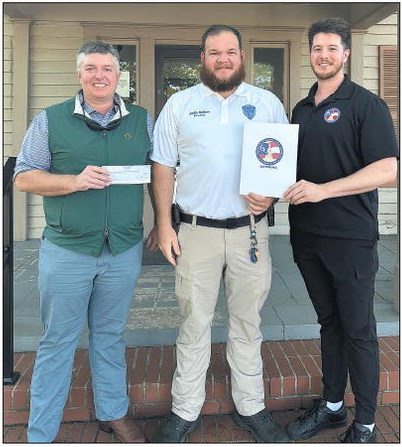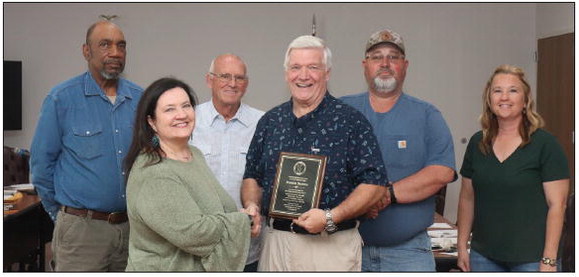Area Election Offices Complete Audit in Preparation for Runoff


Local election offices were busy late last week as local auditors and monitors worked to complete the necessary Risk-Limiting Audit (RLA) of the November 8 General Election ahead of a December 6 runoff election between Incumbent Senator Raphael Warnock (D) and Herschel Walker (R).
A runoff election is required in any electoral race in which a candidate does not receive 50% + 1 vote of the total votes. On November 6, the vote was divided between three candidates: Democrat Raphael Warnock receiving 49.44% of the vote, Republican Herschel Walker bringing home 48.49% of the vote, and Libertarian Chase Oliver taking 2.07% of the vote. Because Warnock and Walker had the top two percentages of the votes, they are the candidates who now move on to the runoff election.
The holidays have created an expedited runoff schedule, as the four-week break between the General Election and Runoff Election is a much tighter time crunch than that of 2021 Runoff Election that put Warnock in office. There will be only one week of advance voting for this upcoming election, and because of Thanksgiving, an advanced voting day on a Saturday was not going to be required continued from page
because of the state holiday.
However, Warnock’s campaign sued to force a reversal of Raffensperger’s decision and prevailed in Friday’s ruling by a Fulton County Superior Court Judge, who deemed that Saturday voting can legally occur this Saturday, November 26. “Allowing for Saturday early voting is a win for every Georgia voter, but especially for workers and students who will have a greater opportunity to make their voices heard in this election,” said Quentin Fulks, Warnock’s campaign manager. “We look forward to counties announcing that they will provide Georgians the opportunity to cast their ballots on Saturday, November 26.”
According to the Montgomery County Probate Court, Secretary of State’s Office Elections Division Liaison Angela Davenport told local elections officials that the Saturday voting date was optional, and each county was allowed to make a decision for each office, whether or not to offer this voting date. Montgomery, Toombs, Treutlen, and Wheeler Counties have all elected not to participate in the date, stating low voter turnout for Saturday voting dates as reasoning. Local Election Information Montgomery County Montgomery County will host voters who wish to vote early from Monday, November 28, to Friday, December 2, at the Montgomery County Courthouse. Hours for voting are 8:30 a.m. until 5 p.m.
Toombs County
The Toombs County Board of Elections and Registration, located at 125 West Lincoln Avenue in Lyons, will have the same advance voting schedule as its neighboring county. Voters will be welcomed in the office from 8:30 a.m. until 5 p.m. on Monday through Friday on the week of November 28.
Wheeler County
The Wheeler County Board of Elections has posted that advance voting will be conducted at its Alamo office in the Community Center on Monday-Friday, November 28-December 2, 8 a.m.-6 p.m.
Risk-Limiting Audit
On November 10, Georgia Secretary of State Brad Raffensperger announced that his own race would be the subject of the state's election risk-limiting audit to be performed on Thursday, November 17.
Background
The audit process is required by Georgia law for every even-year general election. The race to be examined is subject to the discretion of the Secretary of State's Office, with Raffensperger saying Thursday that he chose his own race in the interest of transparency.
'I believe in transparency and accountability to voters, and that's why I've chosen this race,” said Raffensperger, who won his bid for reelection against Democrat Bee Nguyen with a little more than 53% of the vote.
In 2020, Raffensperger chose to audit the presidential race because of the contentious nature of that election. Because the margin of that race between President Biden and former President Trump was so close, the state conducted a full hand-count audit of all the ballots in the state. With this year's race, state officials explained that the margin is much larger and so the sample of ballots that counties audited was much less arduous.
State officials said auditing the Senate race headed to a runoff between Warnock and Walker would have required a similar effort to 2020. Nothing in Georgia law would prevent the Secretary of State from choosing a race headed to a runoff, but, also, nothing requires the Secretary to continued from page
choose the closest race in the election.
Purpose
The purpose of a risklimiting audit is to sample random batches of ballots, count them by hand, and see if the results mostly align with the official machine- count election results.
'The audit will, with statistical confidence, show that the outcome of the election was correct,' said state Election Director Blake Evans. 'It will also show that the machines that tabulated the votes worked properly.'
The confidence level the audit will need to meet is 95%, Raffensperger said, though state officials noted that because of human error in counting there will likely be small discrepancies between the hand-count tallies of certain batches and what the machine count found. Officials said the results of the audit would be published to the Secretary of State website, including with the ability to compare the hand-count numbers to the machine count numbers by county and batch.
The state determined which batches are randomly selected by feeding a 20-digit number into the ARLO auditing system, which is used by Georgia and a handful of other states, including California. The state brought media back to the Capitol on Wednesday, November 16, to roll 20 different 10-sided dice to produce the number they'll feed into the system.
Each county audited at least two kinds of batches of ballots, one which was either an Election Day batch or early voting batch, and therefore be a ballot produced by the state's voting machines, and the other was either an absentee batch or a batch of Election Day provision ballots, which are both types of paper ballots filled out by hand.
Larger counties audited more batches of ballots, while counties with fewer precincts also saw increased number of ballots audited. An estimated 5%-7% of all ballots in the state were reviewed.
Now that the risk-limiting audit is complete, the state can work to certify the November 8 election results by its deadline of November 25.
Local Experience
Locally, election officials from Montgomery, Toombs, and Wheeler Counties gathered in their respective offices to complete the audit on Thursday, November 17, and Friday, November 18. The offices found no discrepancies or issues in the audit.

RISK LIMITING AUDIT – Counties across the state completed the required Risk-Limiting Audit (RLA) of the November 8 General Election on Thursday, November 17, and Friday, November 18. Montgomery County Auditors Makaylee Randolph (left) and Stacie Randolph (right) work to count ballots to ensure the number of ballots recorded match the number of ballots recorded on the election machinery.






